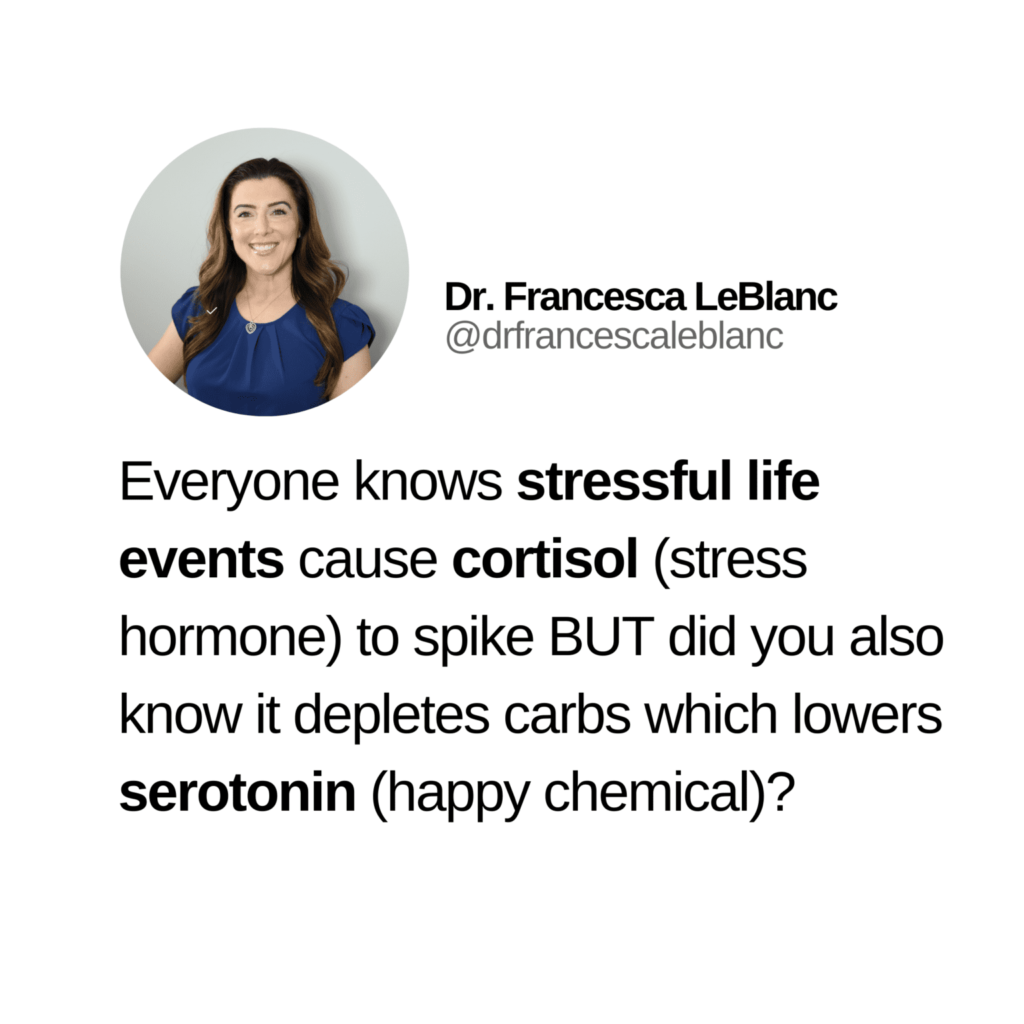About fifteen years ago I went to a doctor for “brain fog,” and was told “it’s all in your head. There is simply no such diagnosis. You need more sleep.” And just like that I walked out of that office with a prescription for sleep medication. Which I tried once and had the most restless sleep (almost “fake sleep”) I could barely function the next day.
It would be another decade before I knew anything about “health” – let alone brain health. My life at that time was stressful and fast-paced; I travelled significantly for my corporate job. I ate all my meals out of the home, drank way too much coffee and diet soda and justified my habits by “spinning myself silly” with daily 5am spin classes.
Fast forward to a career in holistic healthcare and I finally had an explanation for my lack of inspiration, anxiety, and depression: brain fog. Research out of Switzerland states that chronic fatigue syndrome leads to a decrease in brain blood flow and one or more of the following symptoms (1):
Symptoms of Brain Fog
• Slow thinking
• Difficulty focusing
• Confusion
• Lack of concentration
• Forgetfulness
• Haziness in thought processes
The vicious cycle that exists between insomnia, brain fog and mood swings feel frustrating to say the least. For me, resolving one symptom pharmaceutically exacerbated the others and I felt like I was in a hamster wheel.

Causes of Brain Fog
The good news is that if you sleep well (at least seven hours of uninterrupted sleep each night) and are not dealing with any other symptoms other than brain fog, the best place to start is the diet. Brain health is greatly affected by refined sugar, alcohol, and refined carbohydrates. My patients who experience brain fog without insomnia or mood swings respond quickly and efficiently to eliminating these foods for a length of time and slowly reintroducing them to determine which causes the symptoms to return.
But for my patients who experience brain fog in addition to insomnia and mood swings, chances are the H-P-A-T axis may be over-activated. The Hypothalamus-Pituitary-Adrenal-Thyroid axis is responsible for regulating your stress response, digestion, energy, sex drive, mood and emotions.(2) Insomnia and sleep deprivation activate your stress response and increase cortisol production from the adrenal glands.(3) The insomnia piece to the puzzle has very real consequences like: cognitive issues, i.e. brain fog.
Your brain and body rely on balance between the hormones produced by the H-P-A-T axis. For example, stressful life events cause a spike in cortisol and carbohydrate depleting which causes serotonin to dip low. Restoring the delicate balance between the hormones produced by the H-P-A-T axis puts things back on track to significantly reducing and eliminating symptoms.
Natural Remedies
- Assess Protein and Good Fat Intake
Grass-fed beef and organic poultry are great sources of essential amino acids (proteins we do not produce on our own and need to consume within the diet) which fuel the brain so it can continue to release the exact neurotransmitters (the brain chemicals that stimulate body processes and certain hormone production) you need throughout the day.
Wild-caught fish, free-range eggs and most nuts and seeds are great sources of Omega-3 fatty acids while medium chain triglycerides like coconut oil are also great sources of healthy fat. These good fats reduce inflammation systemically and assist the body in producing the hormones needed to be joyful and satisfied. And since nearly more than half your brain is comprised of fat, good fats are absolutely non-negotiable to keep cognitive issues like brain fog, away.(4)
Determining the appropriate amount of daily protein and fat intake varies person to person and initially calculating your macros with a health professional can enable you to zero in on the percentages right for you. However, in my functional diagnostic medicine practice, I find patients respond well to consuming around 35% protein and around 35% healthy fat of their total daily food intake.
2. Eliminate Refined Sugar and Incorporate Natural Carbohydrates
Processed, fast and convenience foods are extremely high in refined sugar (which is why they are palatable and addictive). You may initially feel as though you are “clear-headed” with a boost of energy but over time, consuming foods that contain refined sugar and also artificial sugar increase systemic inflammation and contribute to conditions known as “leaky-gut,” (read more on that here). Eating complex, unprocessed carbohydrates throughout the day does the complete opposite! Foods like sweet potatoes, fruit, ancient grains, and raw dairy improve focus and reduce inflammation.
As mentioned before, calculating your personal macros is very smart to zero in exactly where you need to be daily, but I find most patients in my practice respond well to consuming around 30% of healthy carbohydrates of their total daily food intake.
3. Find a Stress Management Technique that You will Stick With
It seems like these days we are always “connected” to devices and technology and less connected to real people and experiences that bring us joy. To decrease the activity of the H-P-A-T axis and decrease symptoms like brain fog, establishing a “go-to” stress management technique is necessary. If meditation or prayer does not work for you, low-impact exercise like walking or yoga, even journaling or reading may reduce stress. Personally, I feel most relaxed in nature. Find what works for you and commit to utilizing it daily.


Recent Comments